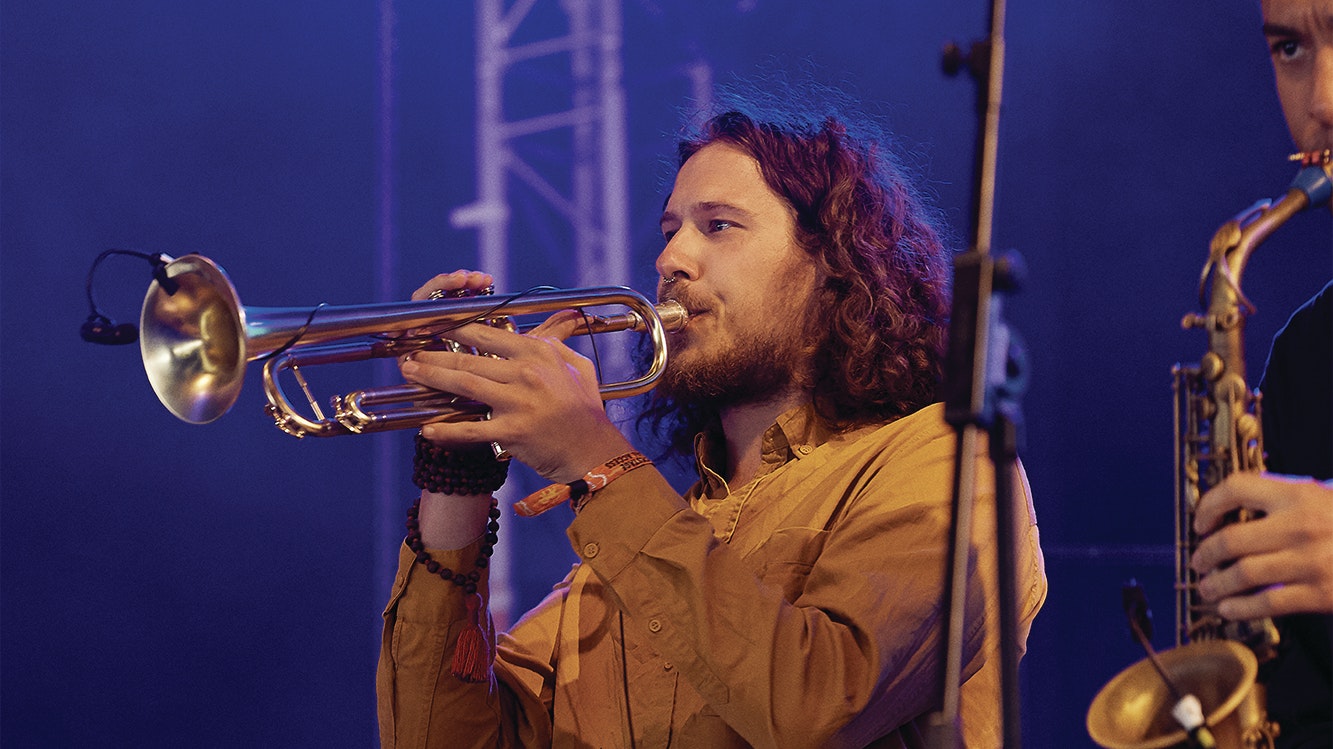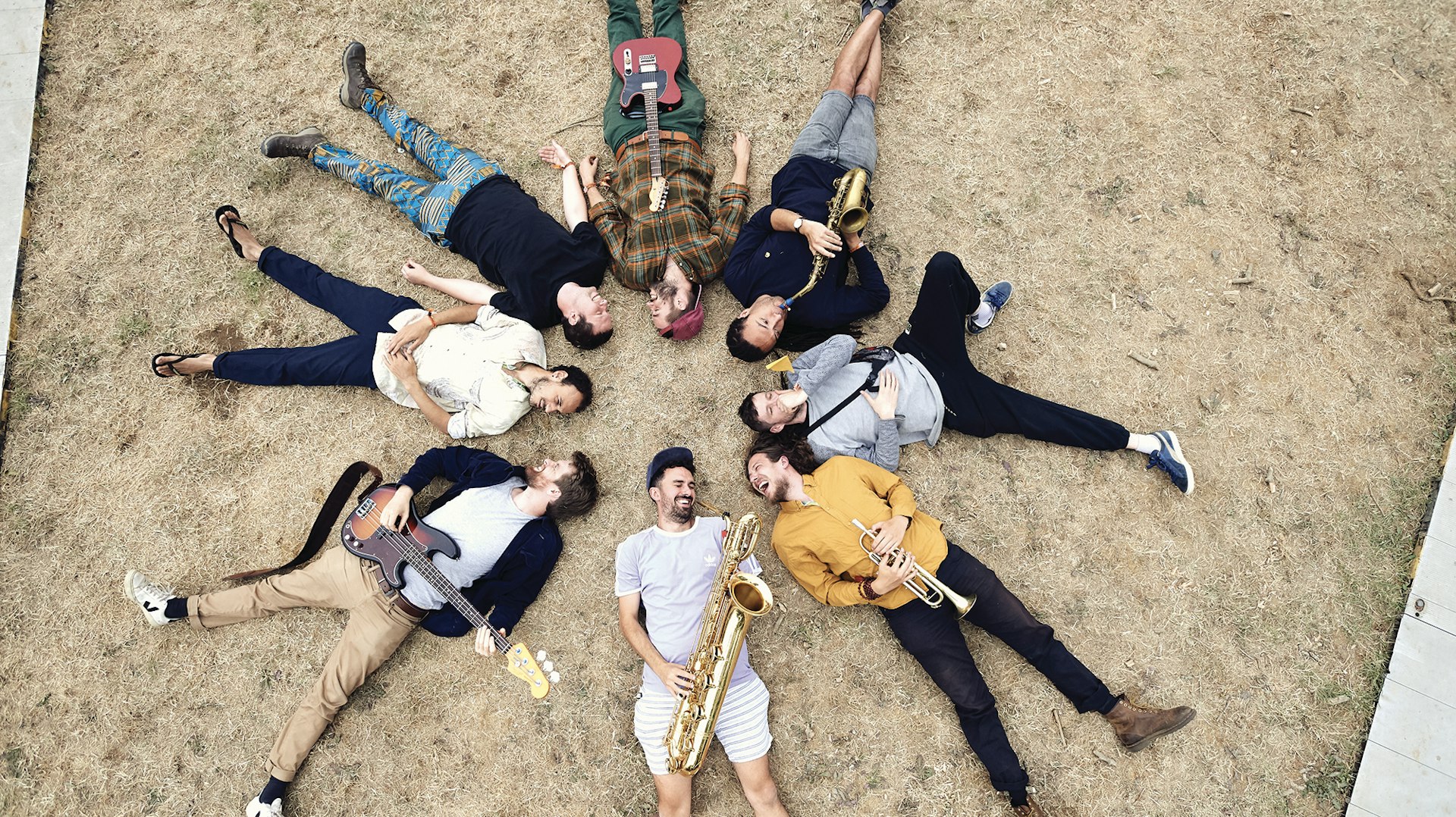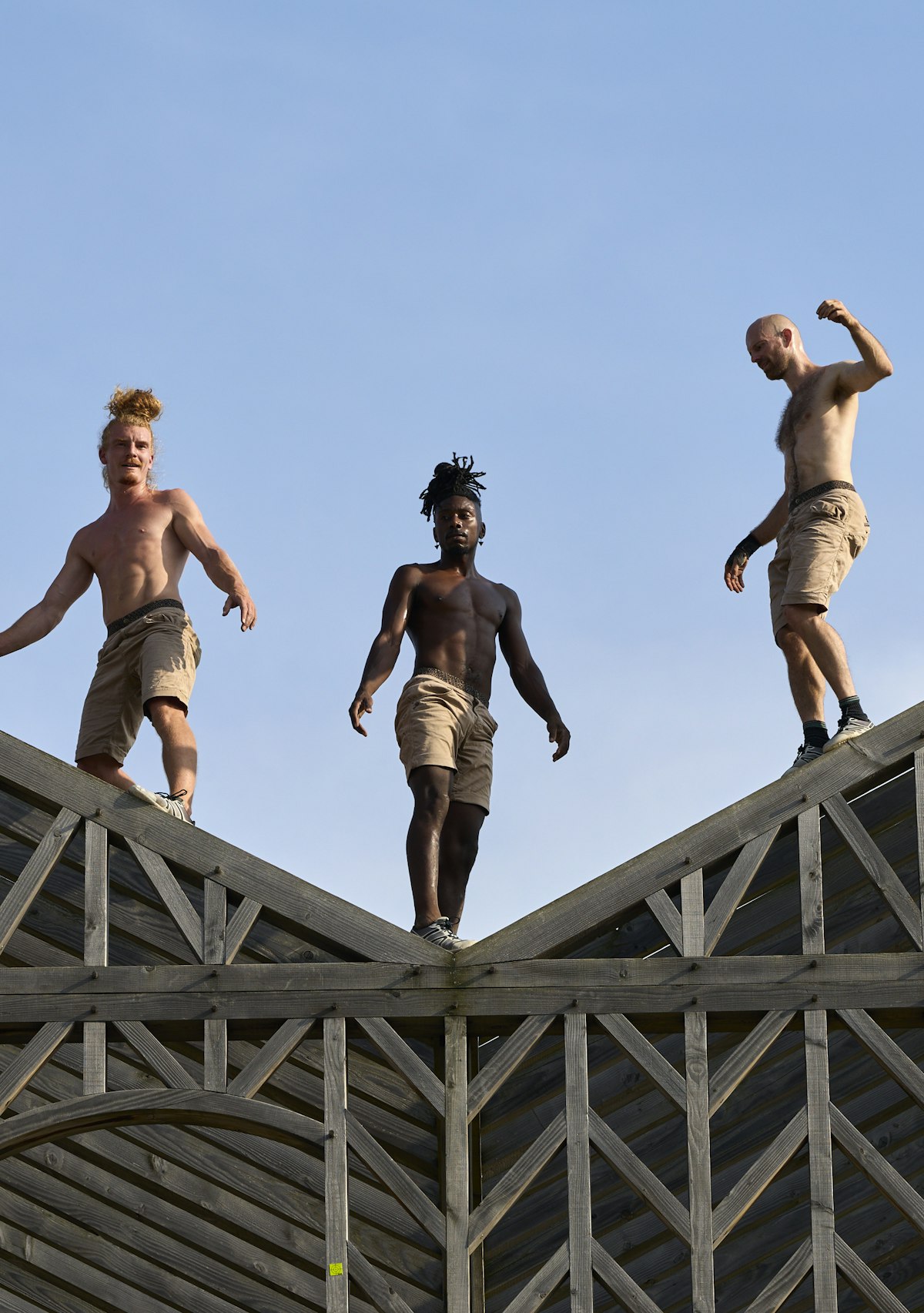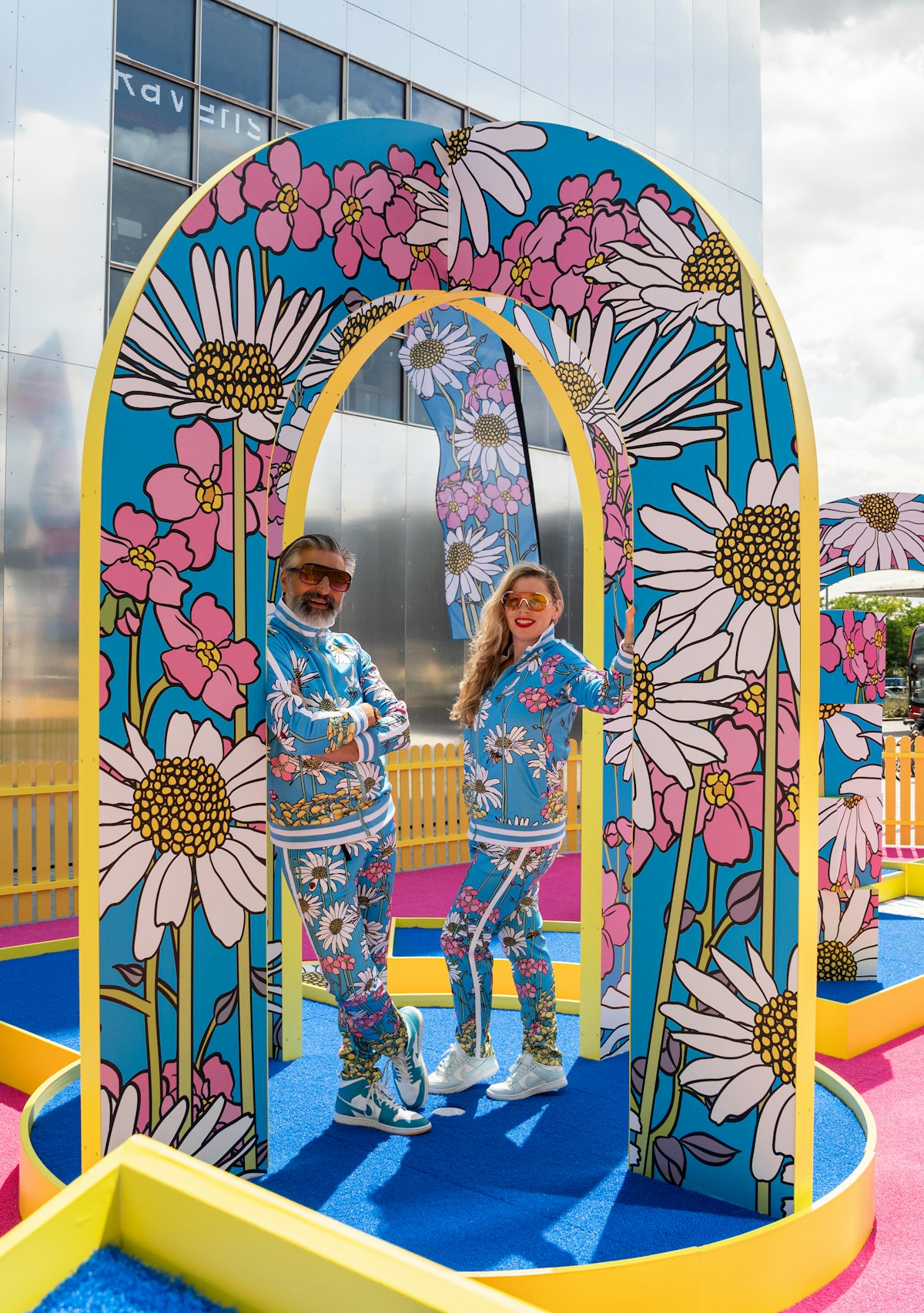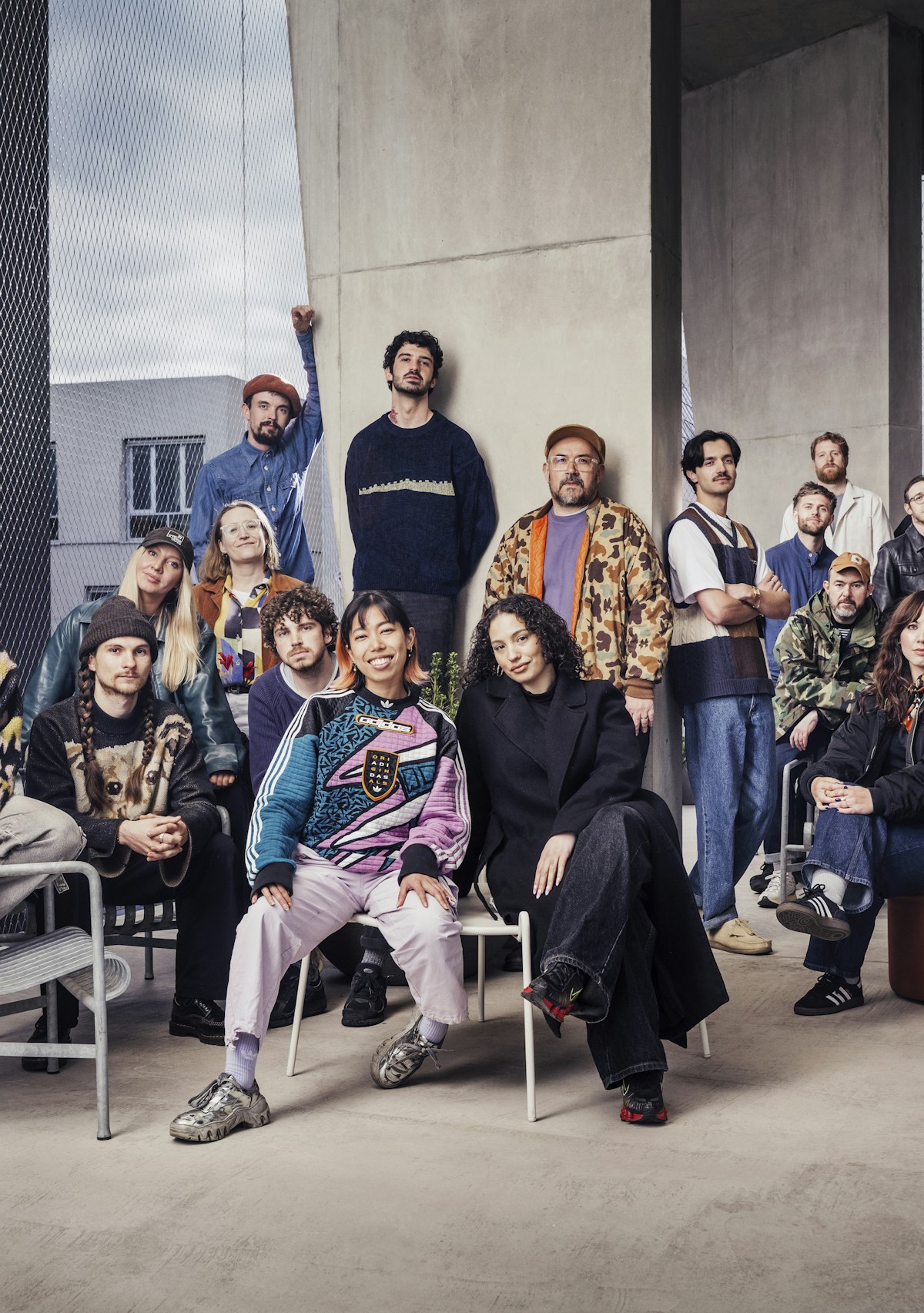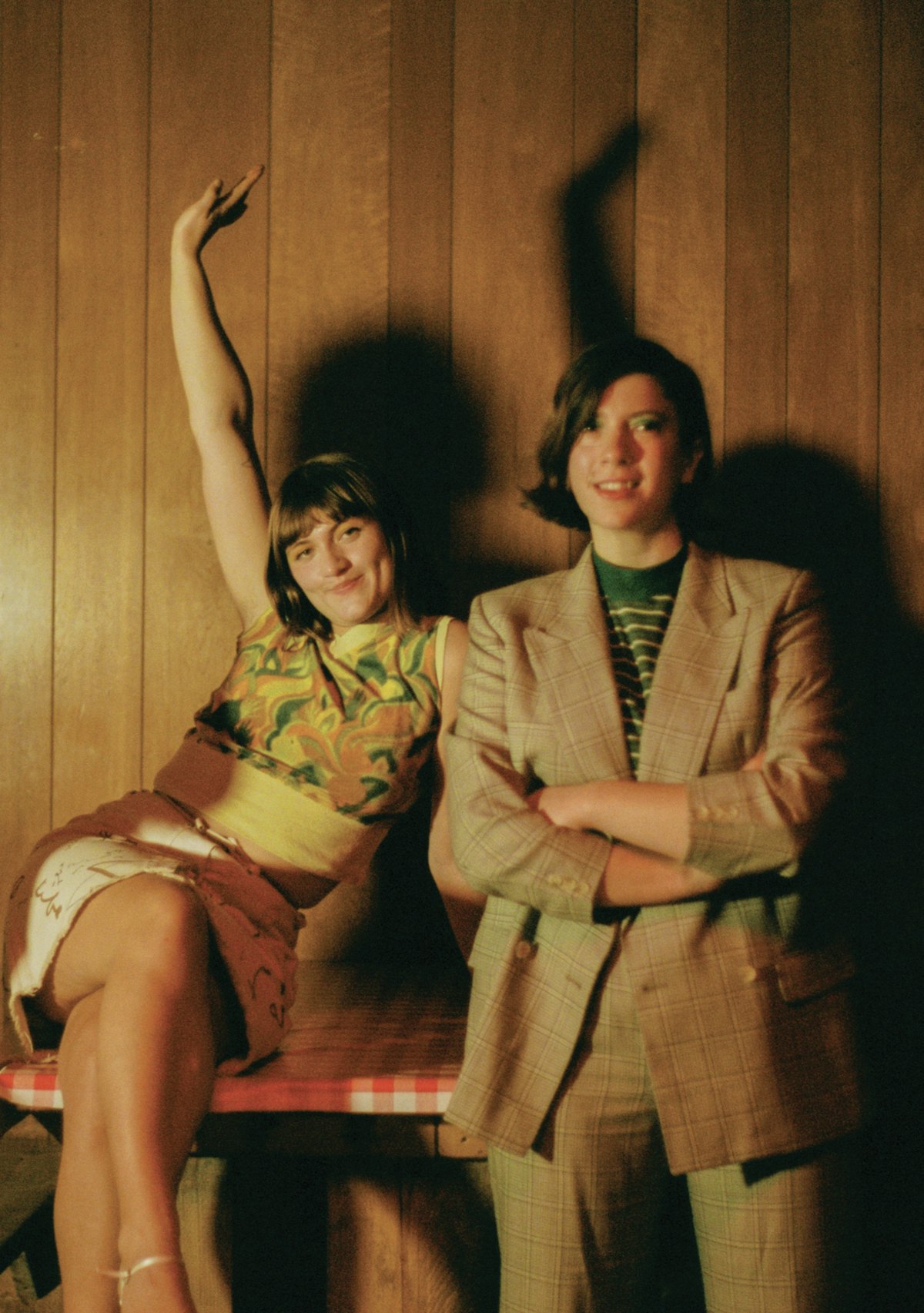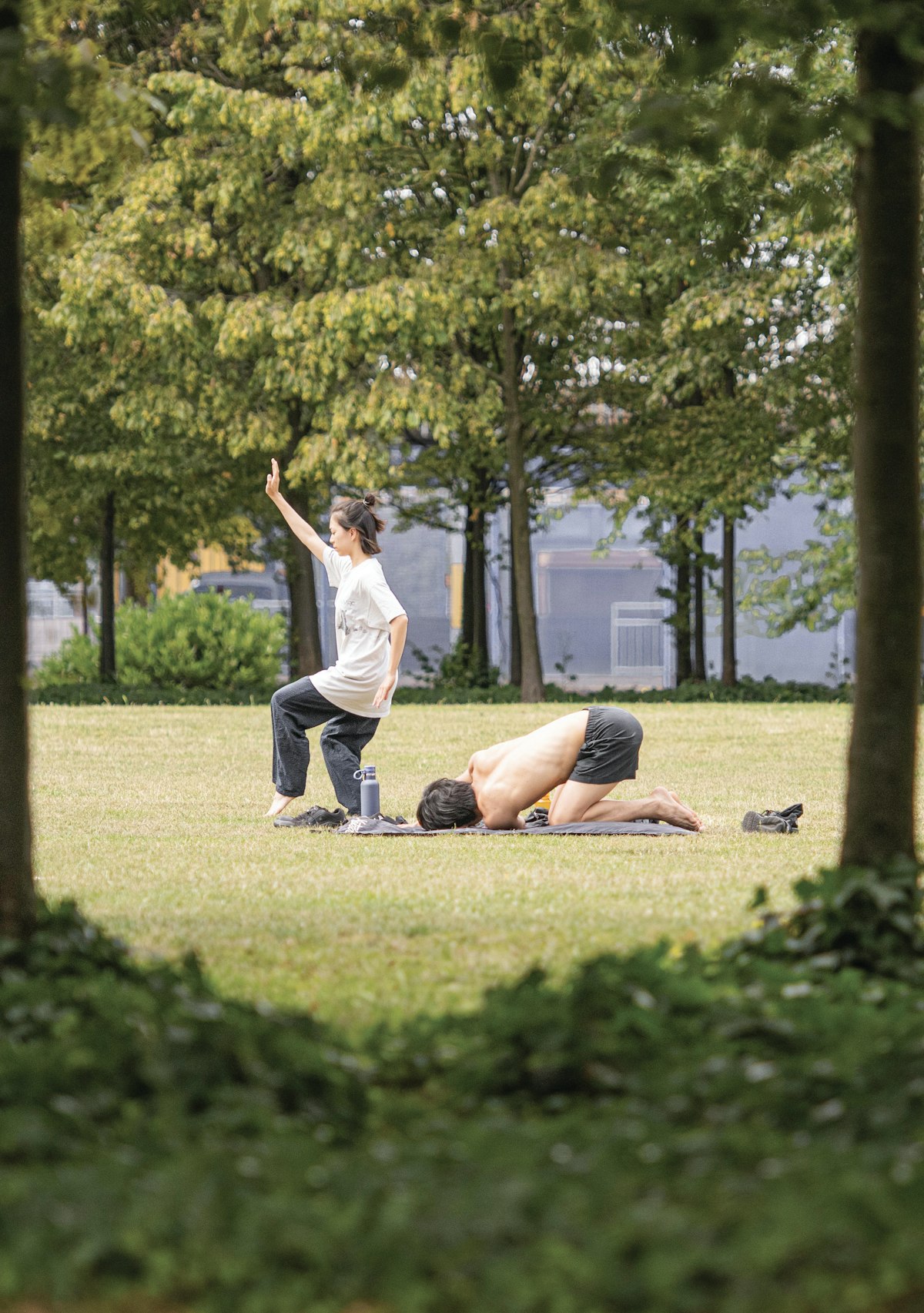
Twist & Shout
Ahead of their co-headline set at Turning Tides, we caught up with musical tour de force Nubiyan Twist to talk festivals, fables and the challenges of touring with a nine-piece band.
The first act on stage on Friday morning at Glastonbury doesn’t expect to draw a big crowd. People are usually too busy getting lost or still bleary-eyed from partying the night before. But despite these obstacles, hordes of revellers descended on the West Holts stage at this summer’s Glasto to see Nubiyan Twist doing their thing. “We didn’t expect there to be huge crowds, but it was rammed, absolutely packed. It was quite humbling,” says band leader Tom Excell.
A month later, the band fills yet another huge festival space; the Siam Tent at WOMAD. They’re energetic, uplifting, bubbling over with effortless musicality and a phenomenal stage presence – an ideal festival act. They’re also perfectly suited to WOMAD’s melting pot of global sounds, which isn’t surprising when you discover the soundtrack to Tom’s childhood featured “traditional African music, traditional Indian music, trip hop, jungle, reggae, jazz, ambient electronica, techno, all sorts of funk…” all courtesy of his dad’s record collection.
Those influences serve as a useful starting point when attempting to describe Nubiyan Twist’s wide-ranging and eclectic sound, something that Tom often struggles to do. “There’s not really a tagline,” he says. “If I’m forced to, I say Afro-jazz, because it kind of covers everything, but it does a disservice to all of the different traditions within.”
These traditions include jazz, dub reggae, and modern dance and electronic music as well as a range of influences from across the African continent, which are arguably the most prominent throughout the band’s work. “Traditional African music and music of the diaspora – to put it broadly – is something I have such a strong love and interest for,” says Tom. “Collaborating with greats like Tony Allen and Pat Thomas really embedded our love for it. And not just music from West Africa – Gnawa music from the north, Congolese soukous... If I go into it, there’ll be too many things to list in one article!” It’s safe to say the band leader has given his influences some thought over the years.
‘Band leader’ may seem a strange, perhaps antiquated, term for a modern artist, but it’s a fitting title for the man who guides an outfit made up of nine core musicians (horn section, drums, guitars, vocalists, electronics) and various other frequent collaborators. “The beauty of a large ensemble is that there’s so much inspiration to draw from,” says Tom.
“Every time we jam, someone’s gonna bring something that sparks an idea. It’s definitely one of the big joys of running a big band”
In fact, the current Nubiyan Twist is a streamlined version of an earlier 12-strong line-up that came together while Tom studied music production in Leeds. “It started out with me, Joe Henwood, our baritone sax player, and Nubiya Brandon, our old singer. Then I invited other mates in Leeds to join. You’d just hear about a great sax player or bump into somebody; our old trombone player was smoking outside a rehearsal room when we met him, and the day before our first gig we asked if he wanted to learn the tunes and jump on. It ended up being 12 of us. Amazingly, we kept that going for a few years, until it was physically impossible to tour with 12 people. We had to slim down a bit.”
Slimming down clearly didn’t impact the Nubiyan Twist sound, nor did the pandemic. Despite some of it being written and recorded remotely during lockdowns, the band’s third full-length album, ‘Freedom Fables’, is a rich, groove-heavy and huge-sounding record, featuring a vast cast of collaborators, including British alto-sax royalty and rapper Soweto Kinch (on the funky ‘Buckle Up’), and singer and songwriter Ego Ella May (on the kaleidoscopic neo-soul of ‘24-7’).
Even under unusual circumstances, the writing process for the album was an instinctive one, Tom says, based more around what felt right, rather than planned musical directions. It’s a loose, free, attitude that serves them well and means that the subtext of a song – or entire album – might not reveal itself immediately. “Sometimes, it’s only when a record is done that I realise what it’s about,” Tom explains. “I hadn’t figured out that ‘Freedom Fables’ was about telling lots of people’s individual stories to find the common threads between us. That was clearly what it was about by the time we finished, but making it was just an instinctive process.”
“ I hadn’t figured out that ‘Freedom Fables’ was about telling lots of people’s individual stories to find the common threads between us. That was clearly what it was about by the time we finished, but making it was just an instinctive process”
That the band are only now touring the album a year after its release is the result of the pandemic putting the brakes on live music. That the band is able to tour at all after such a gap isn’t something that Tom takes for granted. “I know a lot of artists who gave up the industry,” he says. “It wasn’t the same for them anymore and they’ve got other jobs. Now that the cost of living has increased, they’ve said ‘Maybe I just can’t do this anymore.’”
Perhaps because of this, getting back to business with live shows and festivals has been a cathartic experience for both band and audience. “We’ve had some incredible responses from early gigs after Covid,” Tom says. “People came up to us crying, saying how they had this huge release of emotion and how much they missed music. It’s not just recreation or hedonism or drinking pints and dancing – for some people, it’s a form of church to come together in a crowd and sing along. Regardless of who you’re watching, standing in a crowd of thousands of people cheering does something good for your mental health.”
The happy hordes swaying to Nubiyan’s live sets would doubtless agree. As well as ticking off Glastonbury, WOMAD, Boomtown, Kite Festival in Oxford and Jazz à Vienne festival in France, the band have played a string of live shows over the summer, with plenty more scheduled for autumn 2022 – as well as their upcoming appearance at Turning Tides, and while they’re excited to be back, a summer on the road comes with its fair share of stress.
Having so many people onstage looks great when you’re watching from the audience, but getting that many people together on the stage in the first place isn’t easy. “It’s a bit of a nightmare,” Tom says. “It’s a complicated strategic operation, keeping a balance between bringing out as many musicians as we can afford and not going bankrupt, and organising everyone’s transport from London, Sheffield, Leeds and Dublin.
“A lot of things still go wrong. Being in a large touring band isn’t for the faint-hearted, it’s really, really hard. But we keep doing it because we love it. And there are enough experiences where, despite the 48 hours you might be travelling on three hours sleep, that one hour onstage gives you a buzz that’s better than any other job. I would still rather do this and have the luxury of getting to play original music with my friends for an hour. I feel extremely grateful to be doing what I’m doing.”
